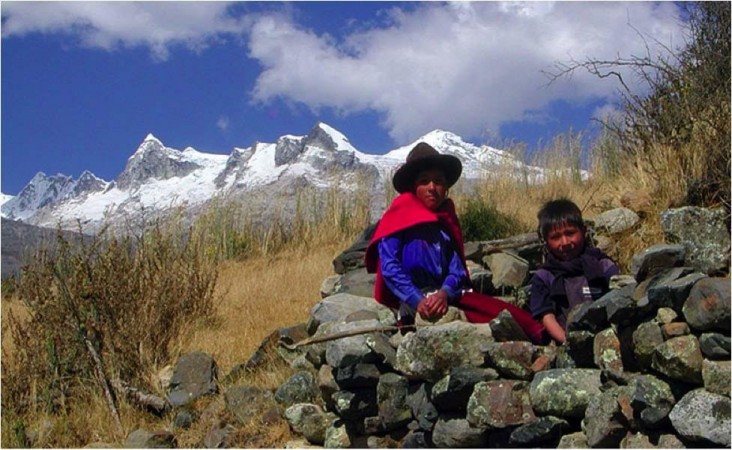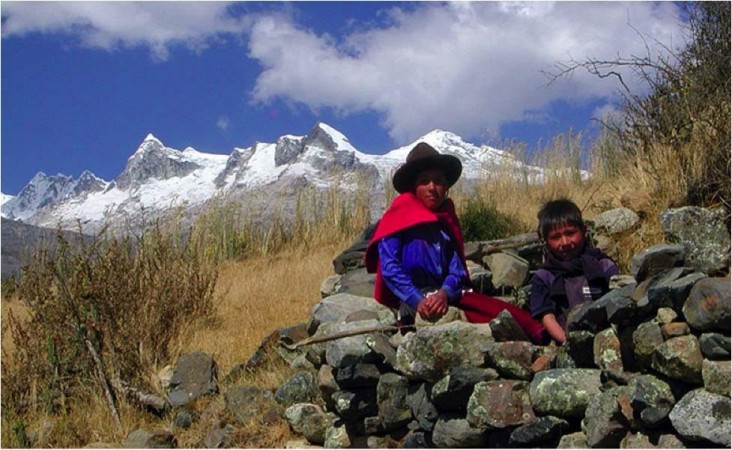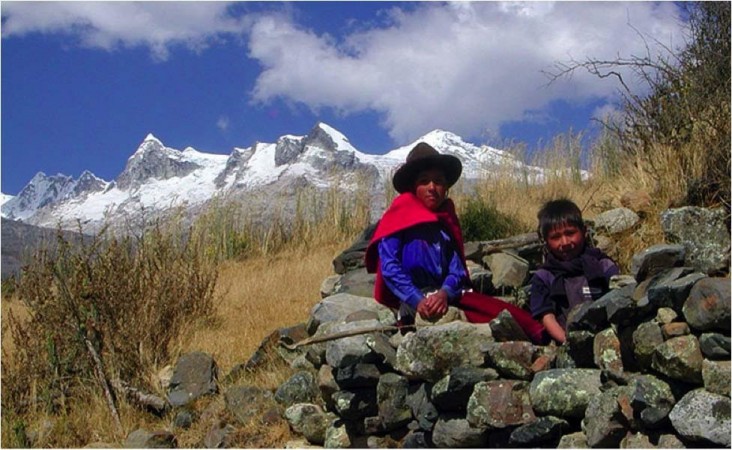Speeches Shim

Climate change and land degradation directly affects water regulating ecosystems, such as wetlands, native grasslands and mountain glaciers, which decreases water availability and increases the risk of floods, extreme droughts, erosion and landslides. USAID helps communities and local governments and water managers adapt to changes in water availability by supporting natural infrastructure projects, advancing climate science research, and empowering local communities with sound management practices to protect and sustain their water resources.
Our work
STRENGTHENING ADAPTIVE CAPACITY
Due to climate change in recent years, seasonal water variations have diverged from historic patterns in Peru, resulting in more droughts and floods. The changes impact population centers such as Lima, Peru’s capital and home to 10 million people. USAID helps scale-up cost-effective natural infrastructure, such as conservation, restoration, and sustainable use of ecosystems and indigenous technologies, in order to manage fluctuations in the water supply and reduce water risks. Activities focus on six regions –Piura, Lima, Arequipa, Moquegua, Cusco and San Martin— to build know-how and mobilize local resources to expand the use of lower-cost natural tools for water management. In Cajamarca, Ancash and Junín, USAID has worked with rural communities to implement water harvesting techniques and other practical, low-cost adaptation measures to secure their water resources. USAID also provides technical support to municipal governments for public works projects that improve irrigation to rural communities and farmers whose livelihoods depend on stable water availability.
ADVANCING CLIMATE SCIENCE AND INNOVATION
Adapting to climate change requires sound research. USAID facilitates professional exchanges between Peruvian and American scientists from the Peruvian National Institute for Agrarian Innovation, the Geological Institute of Peru, and the U.S. Department of Agriculture’s Research Service. Scientists from both countries work to identify innovative research-based strategies to address the effects of climate change. Equipped with reliable data, new methodologies and monitoring capabilities, USAID supports regional governments and watershed councils to inclusively plan and manage water resources.
ENGAGING LOCAL COMMUNITIES
Effective climate adaptation requires citizen participation. USAID has partnered with local communities to understand the sources and threats to local water supplies and implement community-based conservation management plans. Citizens learn how to monitor, evaluate and validate results of improved climate change practices, ensuring sustainability of local conservation efforts. Meanwhile, women in rural Peru are under-represented in community leadership and decision making, although they typically bear greater responsibility for providing water to their families. USAID has successfully worked with communities to increase participation of women in local climate change adaptation initiatives.
Climate Change Adaptation - English ![]() (pdf - 189k)
(pdf - 189k)
Climate Change Adaptation - Spanish ![]() (pdf - 202k)
(pdf - 202k)




Comment
Make a general inquiry or suggest an improvement.